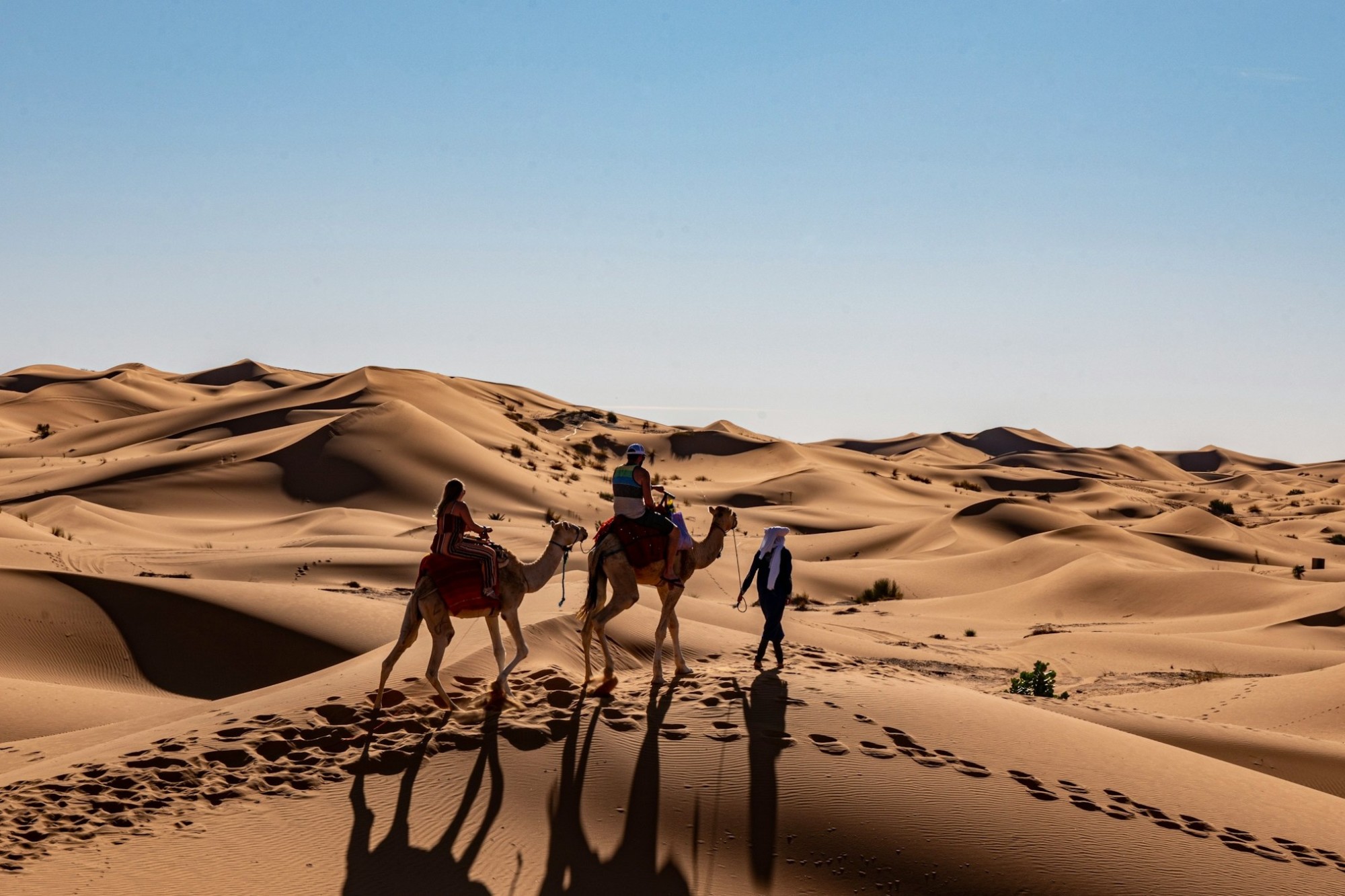
The best time to visit Morocco depends on what you’re after? Maybe you want to avoid crowds in the Medina of Fes. Or perhaps you want to know when the conditions are perfect to surf along the Atlantic coast. What about the best time to go hiking in the Atlas Mountains? Or the best deals on Morocco's luxury hotels?
We’re breaking down the best times to travel to Morocco by season and answering all of the above (and more). For tailored advice and recommendations, connect with a Fora Advisor, who will answer all your travel questions and score you A+ perks at the greatest places to stay across the country.
Morocco’s climate makes it a year-round destination (with exceptions)
While it’s probably best to avoid visiting the Sahara desert in August, for example, many destinations in Morocco are fun to visit any time of year. But there are nuances.
The best time to visit Morocco: seasonal breakdown
Read on for a more in-depth look at what makes Morocco special during each season.
Spring in Morocco (March–May)
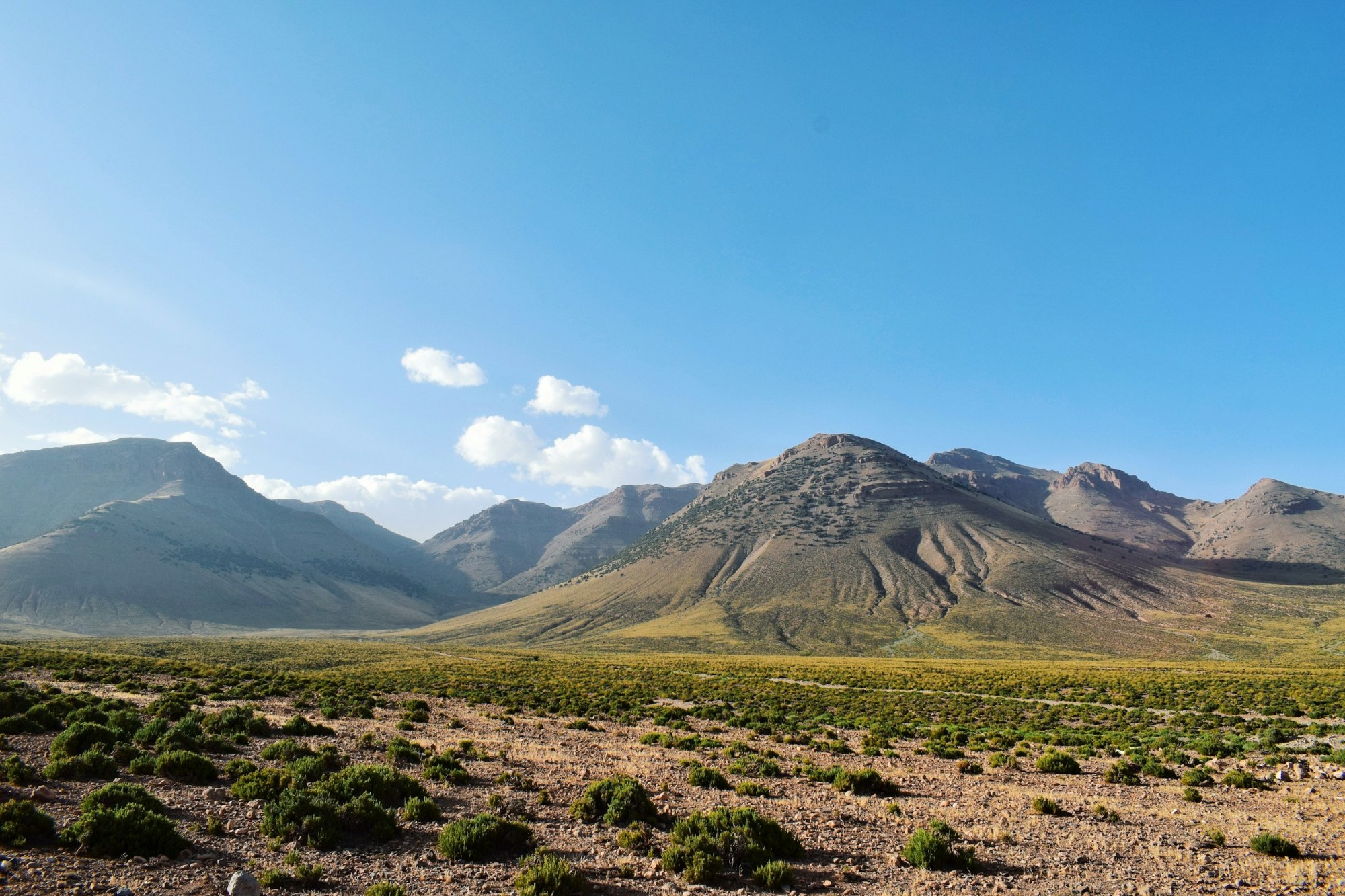
Spring is when Morocco’s weather is at its best. Gorgeous wildflower blooms occur in the mountains while the northern regions are at their greenest. Many of Morocco’s best places to visit, especially the cities, see larger international crowds. This can be a deterrent — and traversing the souks (Moroccan open-air markets) in major cities, for example, can be a little overwhelming. But if you don’t mind crowds, spring is arguably the best time to visit Morocco overall.
Spring is the best time to visit the Sahara Desert (though visiting in fall makes sense, too)
If the Sahara desert is on your Morocco itinerary, visiting in April or May is a must. The temperature swings aren’t as stark as they are during winter and it doesn’t get quite as hot as it does in summer.
The Sahara is quite beautiful in its own way. There’s a serenity here that cities and towns lack. You can also partake in more adventurous activities like riding camels, off-roading and sandboarding.
Want details on tours or rentals? Ask a Fora Advisor. They’ll be able to connect you with trusted partners on the ground so you can enjoy an amazing, worry-free experience.
Spring is also the best time to hike the Atlas Mountains
The weather in the Atlas Mountains is much less extreme than that of the Sahara. You can have fun here any time of year, but spring is a special time to visit. Valley wildflowers bloom in spring, adding pops of color amid the snow-capped peaks and verdant valleys. The views are stunning, and make for an incredible backdrop for hiking (one of our favorite things to do in Morocco).
Early spring isn’t always the best time to visit the Atlantic coast, however
One caveat to visiting Morocco in spring, particularly around March: the Atlantic coast can be a little chilly. This isn’t as much an issue on the Mediterranean coast, which generally enjoys warmer temperatures year-round.
Summer in Morocco (June–August)
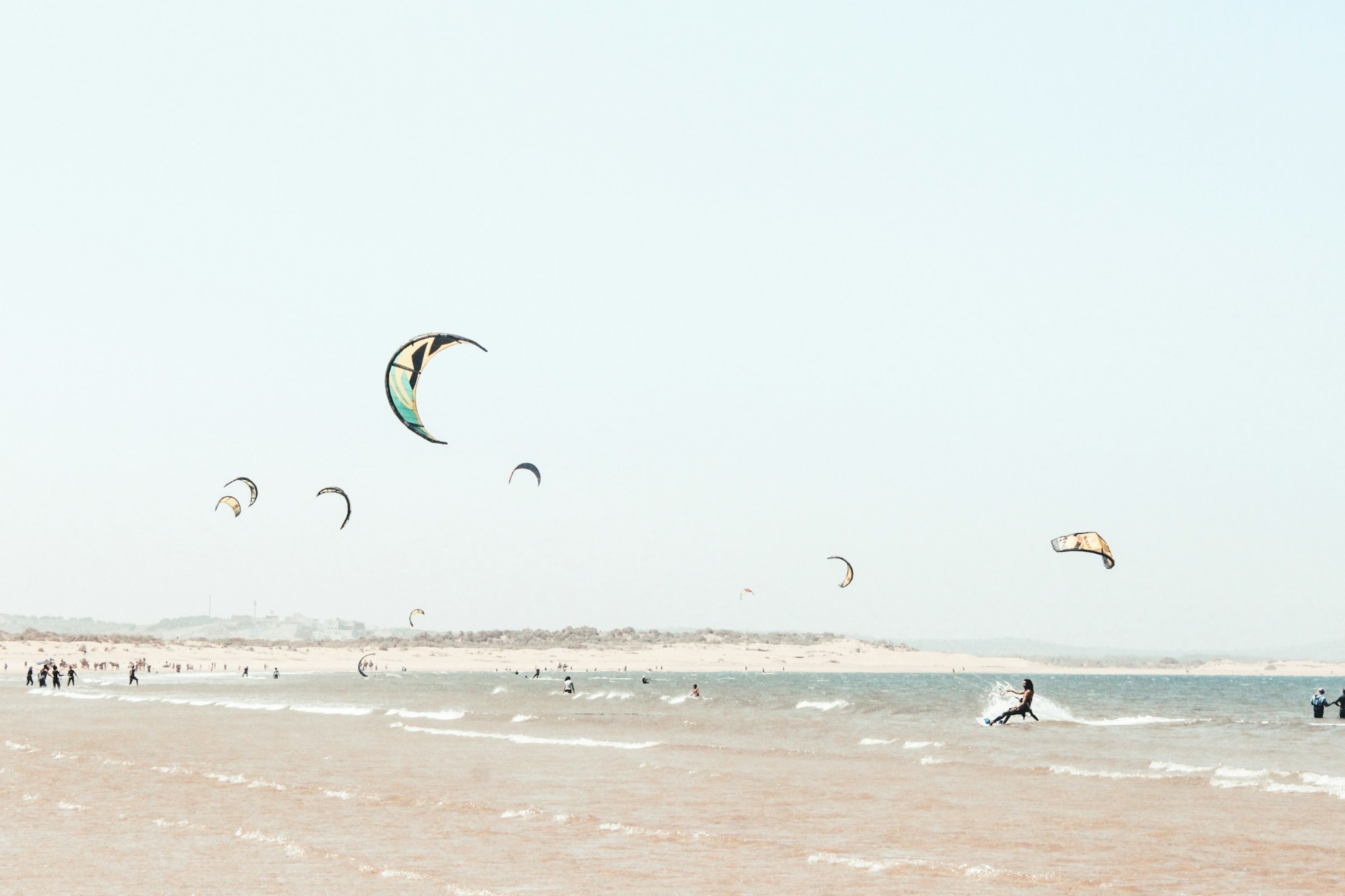
Summer can be a brutal time to visit Morocco’s interior if you’re sensitive to the heat. Most international travel grinds to a halt, while domestic travel actually peaks in summer as locals and expatriates tend to flock to the cooler coasts. There are a few reasons you might want to visit Morocco in summer, though.
July & August are Morocco’s hottest months
You may want to consider adjusting your Morocco itinerary if you’re visiting the country in July or August. Dry-bulb temperatures regularly exceed 100°F in major cities, and crowded, open-air markets aren’t exactly fun to explore when it gets that hot. Moreover, places like the Sahara can be outright dangerous to visit during summer.
Summer is the best time to visit Morocco’s Atlantic coast for experienced surfers
Beach towns like Essaouira, Morocco enjoy relatively comfortable temperatures in summer, but you’ll have to deal with crowds as domestic travelers escape the heat.
As always, there are exceptions. Some Atlantic beaches are less popular among your average traveler because of larger swells caused by the ocean’s trade winds. What’s not ideal for swimming or relaxed watersports tends to be great for surfers, kiteboarders and wakeboarders.
On a bright note: summer is the best time to travel to Morocco’s interior for affordable rates
Outside of the coastal resorts, experiences and hotels in Morocco tend to be more affordable during summer. If you’re okay with the heat, this is a great way to score a more affordable trip. Just be aware that not all resorts and experiences are available during this period (a Fora Advisor can help you sort this out).
Fall in Morocco (September–November)
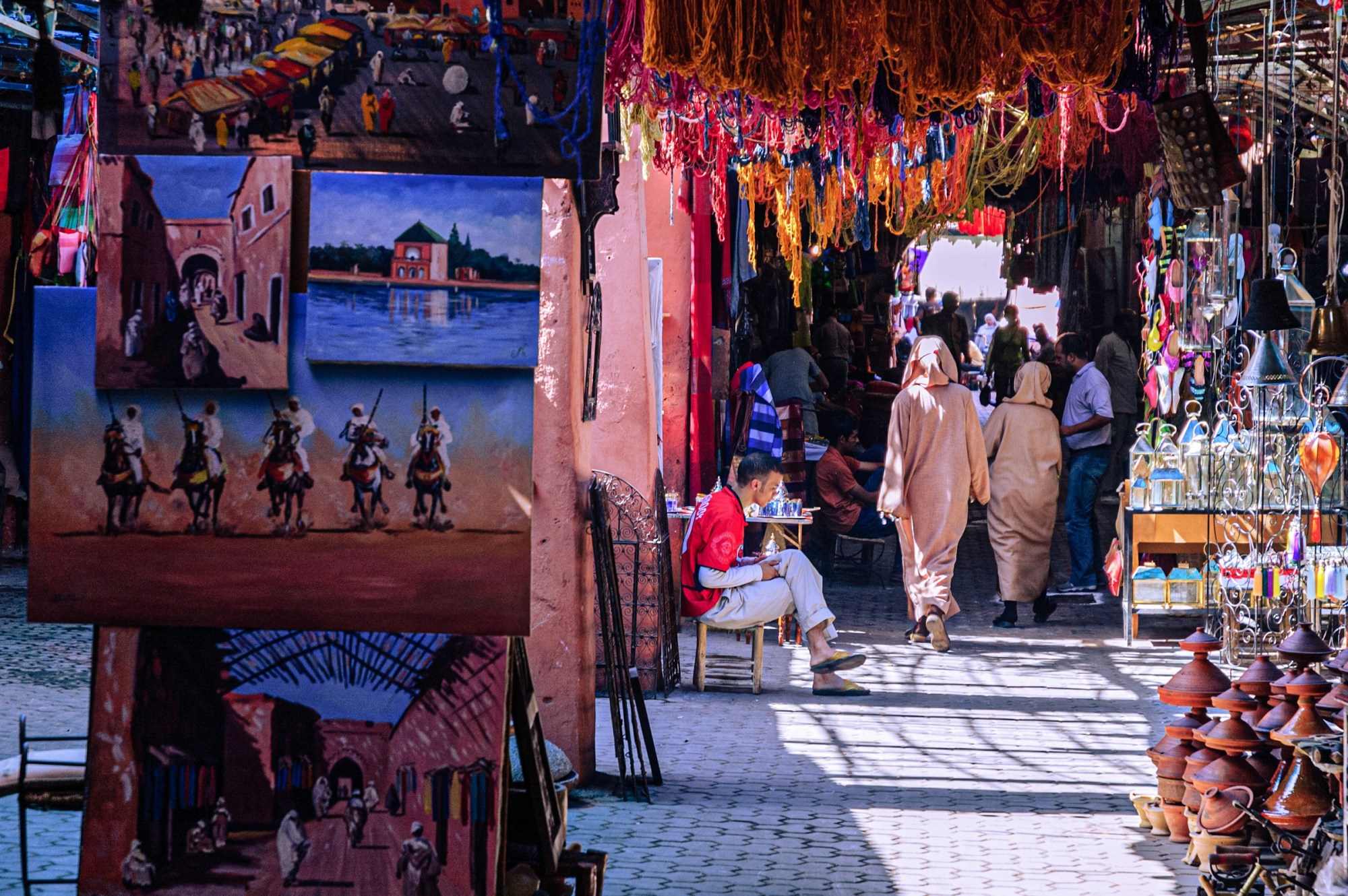
Besides spring, Fall is the best time to visit Morocco. The temperatures are milder and the cities wake from their summer dormancy.
September is a sweet spot if you want to avoid the worst of the returning crowds. The temperatures are notably warmer than what you’ll experience in October or November, but they’re not as extreme as what you’ll find in August. At the same time, smaller crowds often mean good deals on accommodations and experiences.
(Want answers to common questions and a few niche tips? See our Morocco travel guide.)
Visiting the Atlas Mountains or Sahara can be pleasant in fall, too
In fall, the Atlas mountains lack the wildflower blooms and greenery that spring brings. But the comfier temperatures and still-lovely scenery make hiking a pleasant experience. The only downside is that rain is more common in fall, and can make some trails hazardous.
You won’t have to worry about rain in the Sahara, however, and the desert’s fall weather is similar to how it is in spring. Don’t forget: when you connect with a Fora Advisor, they can set you up with incredible experiences curated by trusted partners.
Winter in Morocco (December–February)
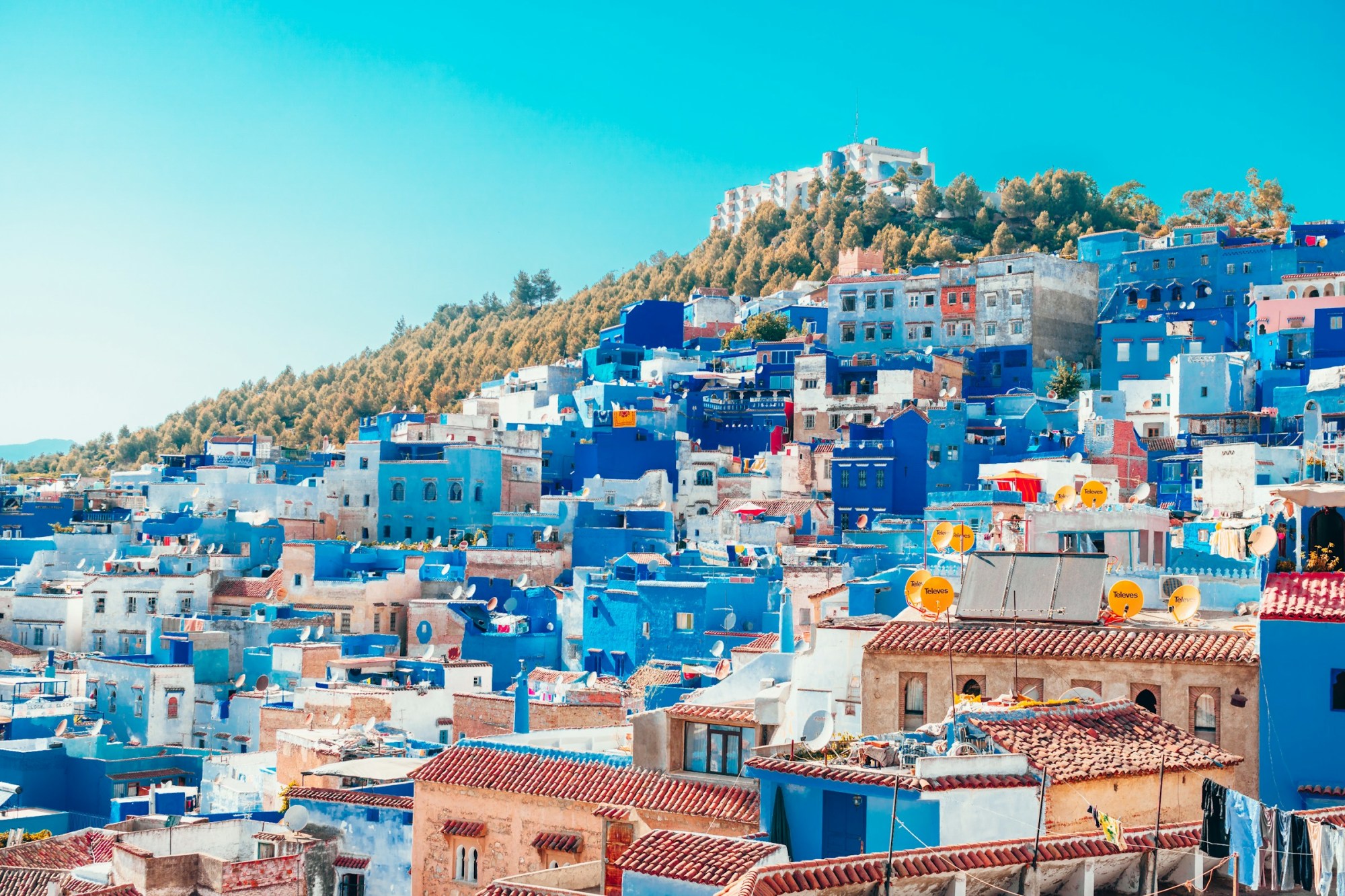
Winter is an interesting time to visit Morocco. Both international and domestic travel is at its lowest across the board, but the weather is actually pretty agreeable outside of the mountain regions.
This translates to decent rates across the country, but some experiences aren’t offered in winter. The Atlantic coast doesn’t necessarily shut down, but cold ocean temperatures make the beaches uncomfortable for anything but determined surfers, who can still enjoy good waves along some spots.
January and February are Morocco’s coldest months…
Between January and February, the average high in Morocco is around 60℉. The mountain regions are significantly colder, though, with temperatures sometimes dropping below freezing.
…which means they’re the best months to visit Morocco’s ski resorts
Morocco has a handful of ski resorts. They’re much smaller than the ritzy resorts of Europe or North America (check out our guides to the best places to stay in Colorado or skiing in the Swiss Alps), and their season tends to be shorter. But skiing in places like Oukaimeden — arguably the top choice — makes for a unique day trip from Marrakech.
The best time to visit Morocco: FAQs
Have more questions about the best time to visit Morocco? Read on (or you can always ask a Fora Advisor).
Overall, what’s the best time to travel to Morocco? How about Marrakech, specifically?
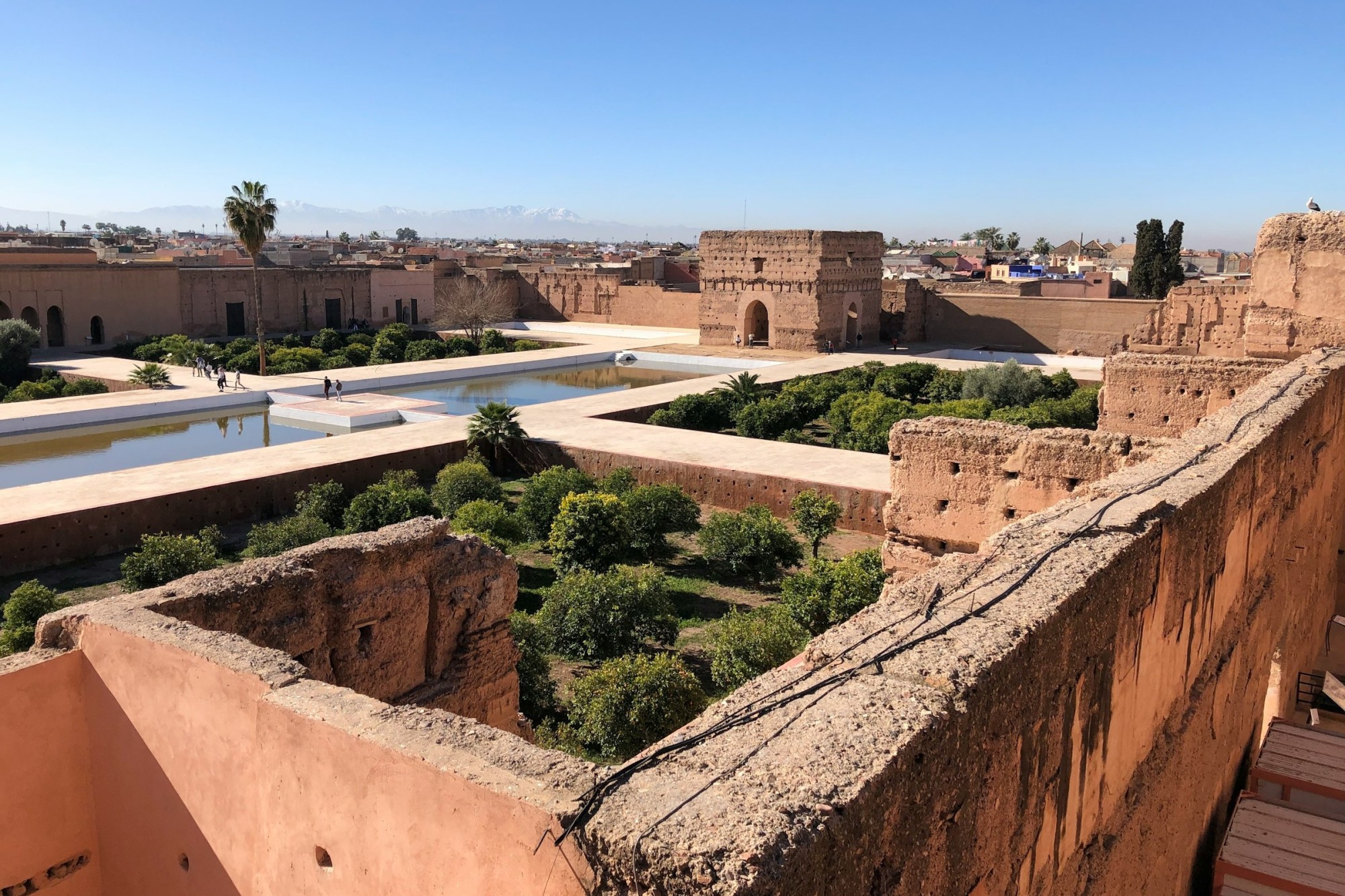
Ultimately, it depends on what you want to do. But most Fora Advisors agree that the best time to visit Morocco, including the city of Marrakech, is either spring or fall.
(Wondering about the best hotels in Marrakech or the top things to visit in Marrakech? Our guides have ideas.)
Does Morocco have a rainy season? What’s the rainiest month?
Morocco does indeed have a rainy season. Between October and April, the country receives an average of two inches of rain per month. November is technically the rainiest month, but not by a huge margin. The rainy season is largely limited to the northern half of the country and along the coast. The Sahara, by contrast, receives very little or no rain most years.
When’s Morocco’s high season? Does Morocco get crowded?
Spring is peak travel season in Morocco, with fall not too far behind. During this period, the cities do indeed get crowded. That said, Morocco doesn’t receive the same kind of traffic as, say, the Caribbean or Europe (think Italy, Spain or France).
What’s the most affordable time to travel to Morocco?
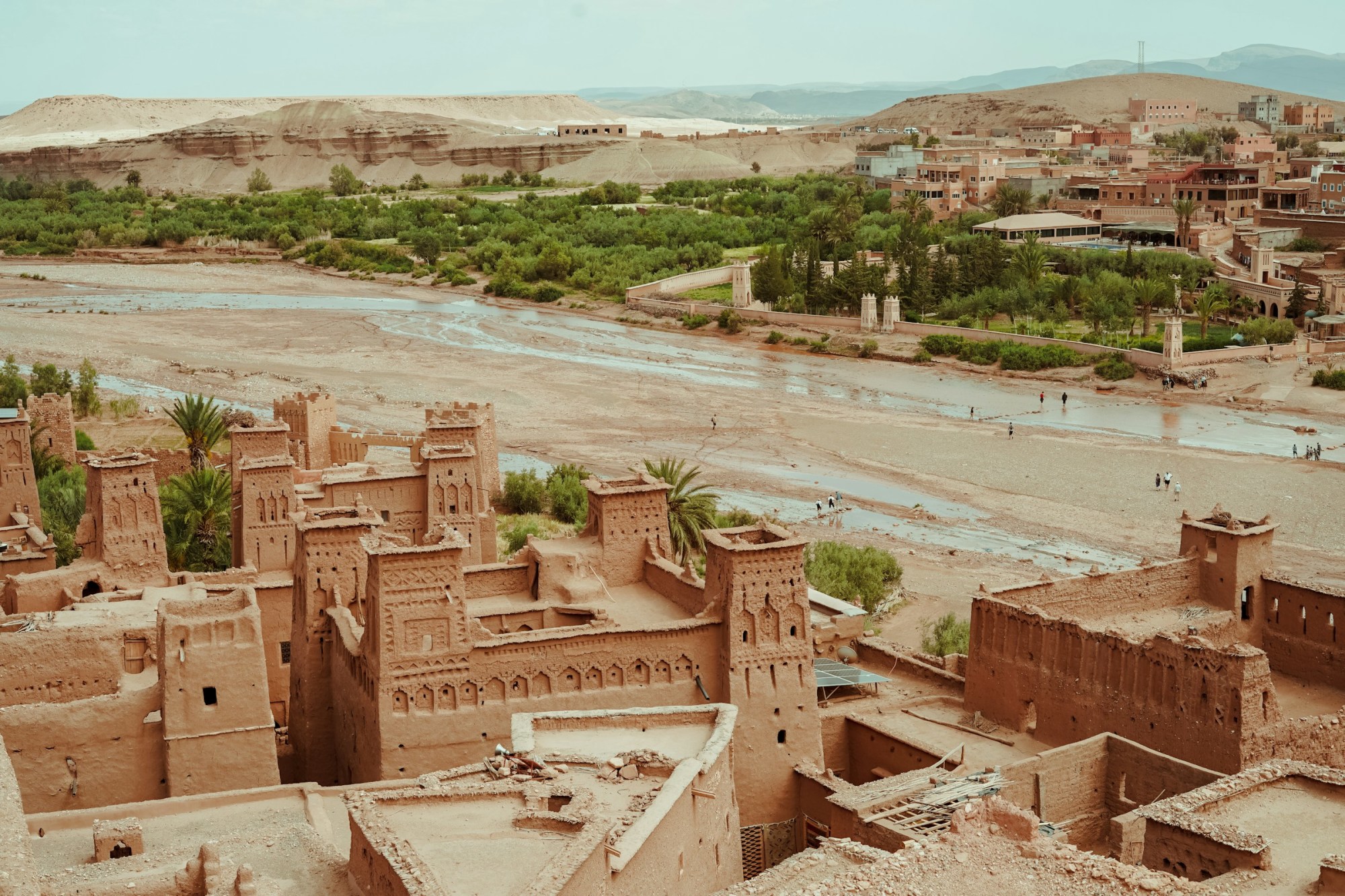
Summer is easily the most affordable time to travel to Morocco’s interior. Unfortunately, it’s also extremely hot during this period. The coasts, however, tend to be most affordable during winter months.
When does Ramadan occur in Morocco? Can non-Muslims visit Morocco during this period?
Ramadan is the ninth month of the Islamic calendar, which doesn’t exactly line up with the Gregorian Calendar. As such, the dates change year to year (a Fora Advisor can totally let you know if your desired travel time falls within Ramadan).
Non-Muslims can certainly visit Morocco during Ramadan. However, many businesses and experiences operate during different or shorter hours during the month. On the flip side, Morocco experiences a drop in tourism during Ramadan, so rates may be more affordable.
Connect with Fora for help finding your best time to visit Morocco
Can’t decide when your best time to visit Morocco is? We can help. When you book and plan your trip with a Fora Advisor, they’ll help you figure out when to visit based on your travel preferences: budget, desired itinerary and / or accommodations — you name it. Plus, no matter when you travel to Morocco, your Fora Advisor will hook you up with expert recommendations and sweet perks at the best properties in Morocco.
Need more Morocco travel inspiration? Check out these guides, too:
